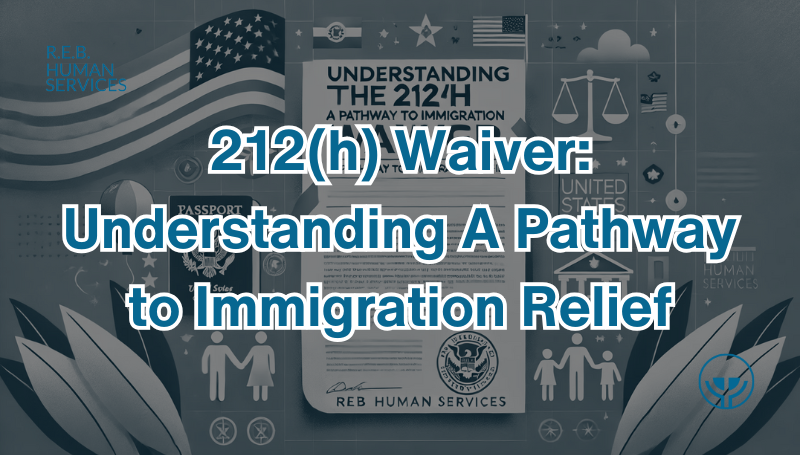Navigating U.S. immigration law can be especially challenging for individuals with prior criminal convictions. The 212(h) waiver, a crucial provision under the Immigration and Nationality Act (INA), offers these individuals an opportunity to overcome inadmissibility and pursue permanent residency or other immigration benefits. However, the success of a 212(h) waiver application often depends on more than just legal arguments—it requires a compelling personal narrative, supported by detailed psychological evaluations and expert documentation.
What is the 212(h) Waiver?
Section 212(h) of the INA provides an exception for individuals who are inadmissible to the United States due to specific criminal convictions. This waiver allows them to apply for legal entry or adjustment of status. The waiver covers inadmissibility based on the following categories:
- Crimes Involving Moral Turpitude (CIMT): Offenses that violate societal moral values, such as theft, fraud, or assault.
- Multiple Criminal Convictions: Two or more convictions with an aggregate sentence of five years or more.
- Prostitution and Commercialized Vice: Participation in prostitution or unlawful commercialized activities.
- Certain Controlled Substance Violations: Limited to simple possession of 30 grams or less of marijuana.
Who Qualifies for a 212(h) Waiver?
To successfully apply for a 212(h) waiver, individuals must meet one of the following criteria:
- Rehabilitation and Passage of Time
- The inadmissible activities occurred more than 15 years ago.
- The applicant demonstrates rehabilitation and shows that their admission is not contrary to U.S. national welfare, safety, or security.
- Extreme Hardship
- Denial of admission would result in extreme hardship to a U.S. citizen or lawful permanent resident family member (spouse, parent, son, or daughter).
- VAWA Self-Petitioners
- Individuals applying under the Violence Against Women Act (VAWA) may qualify if they can demonstrate eligibility under this provision.
Note: Certain serious offenses, such as murder or acts involving torture, are not eligible for this waiver.
The Role of Psychological Evaluations
A psychological evaluation is often a critical component of a 212(h) waiver application. It helps provide a compelling and evidence-backed narrative, demonstrating the applicant’s rehabilitation, remorse, or the potential hardship their family would face if the waiver were denied. Specifically, these evaluations:
- Document Extreme Hardship: Highlight the emotional, financial, or psychological toll on qualifying family members.
- Showcase Rehabilitation: Present evidence of behavioral change, therapy, and reintegration into society.
Why Expert Support Matters
Successfully applying for a 212(h) waiver requires more than meeting legal criteria—it involves presenting a strong, persuasive case that aligns with immigration law standards. REB Human Services specializes in supporting clients through this complex process, offering:
- Detailed psychological evaluations conducted by licensed mental health professionals.
- Reports tailored to meet legal and procedural requirements.
- Compassionate guidance to ensure every unique circumstance is documented and presented effectively.
Conclusion
The 212(h) waiver provides individuals with prior criminal convictions a valuable opportunity to move past their challenges and build a better future in the United States. With the right legal strategy and a strong, evidence-based case, applicants can overcome inadmissibility barriers and secure the immigration benefits they deserve.
Remember to follow us on social media to stay up to date with all our content wherever you are. We are here for you!





No comment yet, add your voice below!